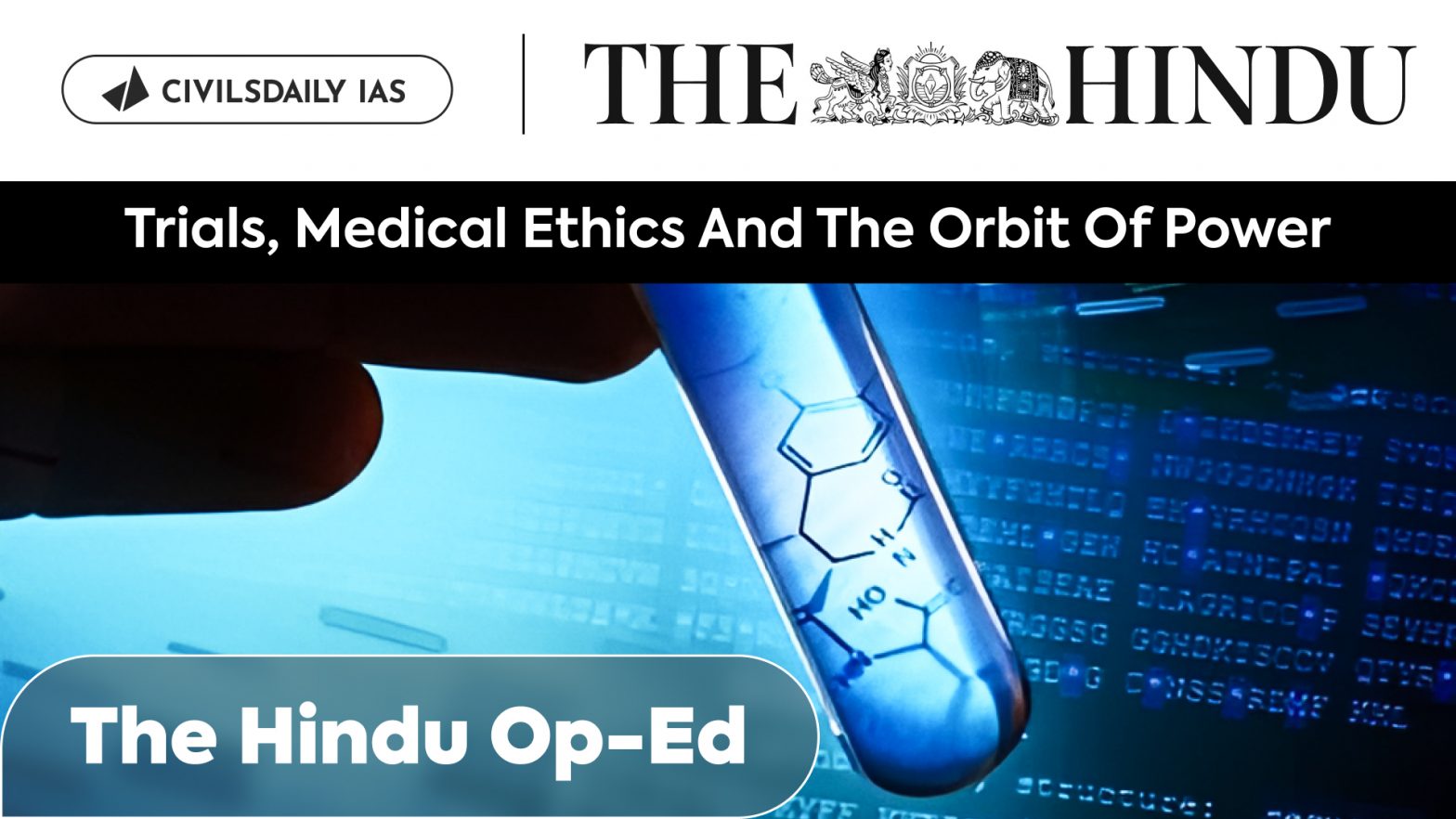| PYQ Relevance: Mains: Q) If an amendment bill to the Whistleblowers Protection Act 2011 tabled in the Parliament is passed, there may be no one left to protect. Critically Evaluate. (UPSC CSE 2015) Q) With consideration towards the strategy of inclusive growth, the new Companies Bill, 2013 has indirectly made CSR a mandatory obligation. Discuss the challenges expected in its implementation in earnest. Also, discuss other provisions in the Bill and their implications. (UPSC CSE 2013) |
Note4Students:
Prelims: Whistleblowers Protection Act 2011,
Mains: Ethical issues in the Medical sector,
Mentor comment: On January 10, 2021, Rashida Bee, Nawab Khan, Rachna Dhingra, and Nausheen Khan alleged ethical violations in Bharat Biotech’s Covaxin trial at People’s Hospital, Bhopal. They cited informed consent breaches, enrollment of vulnerable groups, non-reporting of adverse events, and inadequate participant monitoring. They demanded intervention to halt the study and independent investigation. The outcome of their letter remains undisclosed.
Let’s learn!
__
Why in the news?
In India, the primary safeguards intended to prevent medical ethics abuse are ineffective.
What are the Primary safeguards?
- Primary safeguards are fundamental measures or systems put in place to prevent unethical practices and ensure ethical standards are maintained.
- These safeguards are designed to protect individuals and maintain integrity within processes, such as clinical trials.
- They typically include regulatory frameworks, oversight committees, informed consent procedures, transparency requirements, and accountability mechanisms.
Ethical Abuse
- Allegations of Ethical Violations in Covaxin Trial: Irregularities and ethical violations were alleged in the Covaxin clinical trial conducted by People’s Hospital in Bhopal, Madhya Pradesh. Violations included lack of informed consent, enrollment of vulnerable populations, non-reporting of adverse events, and inadequate monitoring and follow-up.
- Regulatory Approval and Ethical Guidelines before the completion of Phase III study: The Indian drug regulator, Central Drugs Standard Control Organisation (CDSCO), approved Covaxin for “Restricted Use under Clinical Trial Mode” before the completion of its Phase III study.This approval process was not defined in India’s Drug Regulatory Framework, creating ambiguity and potential ethical lapses.
- Lacking in the effectiveness of Ethics Committees: Ethics committees at trial sites are meant to oversee and ensure ethical conduct in clinical trials. There were issues with the effectiveness of these committees, with allegations of gross violations of ethics guidelines.
- Whistle-blowers show the various incidents of ethical violations: Whistle-blowers play a crucial role in exposing ethical violations in medical experimentation. Carl Elliott’s book, “The Occasional Human Sacrifice,” details various incidents of ethical violations in medical trials, highlighting the courage required to speak out.
Innovative therapies and ethics
- Balancing Risk and Benefit: Developing life-saving medicines involves a delicate balance between the potential risks to patients and the projected benefits of the therapeutic candidate. This process requires specialised knowledge and experience to make informed decisions, which is often lacking, leading to ethical challenges.
- Lack of Expertise in Clinical Development: India has a strong generic drug manufacturing industry but lacks deep expertise in developing innovative therapies. The management of clinical development is often overseen by medical doctors who may not have specialized knowledge in drug development, leading to ethical violations and inadequate oversight.
- Ethical Violations in Pandemic Response: During the COVID-19 pandemic, there were examples of medical ethics being compromised, such as unrealistic projections of case numbers and the creation of terms like “emergency use authorization in clinical trial mode” to justify premature decisions. These actions highlight the need for better guardrails and ethical standards in managing the development and approval of new therapies.
Indian Patients and Clinical Studies
- Violation of Informed Consent: There is a historic and repeated violation of informed consent in India, with poor and uneducated patients being enrolled in clinical studies without being fully informed of potential harm. Ensuring informed consent falls under the responsibility of institutional ethics committees, whose effectiveness is often questionable.
- Ineffectiveness of Institutional Ethics Committees: Despite existing on paper and in regulations, the functioning and effectiveness of institutional ethics committees in India are patchy. A study by Gayatri Saberwal et al. (2022) identified numerous issues, such as clinical trials without ethics committees and trials with more sites than functional ethics committees.
- Abuse of Regulations by the Industry: A significant abuser of these regulations is a section of the industry promoted by the Ministry of AYUSH, which conducts poorly designed and executed clinical studies with zero oversight. These studies often aim to provide a veneer of scientific validity to various concoctions without proper ethical standards.
- Comparison with Western Systems: Even well-designed and well-run systems in the West face challenges in maintaining checks and balances on accountability. India’s systems are far from achieving the same level of function and effectiveness, highlighting a significant gap in ethical standards and accountability in clinical studies.
Way forward:
- Enhancing Training and Oversight: Provide specialized training for members of institutional ethics committees to ensure they have the necessary knowledge and skills to oversee clinical trials effectively. Regular audits and monitoring should be conducted to assess the performance and adherence to ethical guidelines.
- Independent Audits: Conduct independent audits of clinical trial sites and ethics committees to ensure compliance with ethical standards and regulatory requirements. Establish clear consequences for non-compliance to deter unethical practices.
- Clear Guidelines and Definitions: Define clear regulatory pathways and guidelines for clinical trials, including terms like “Restricted Use under Clinical Trial Mode.” This will reduce ambiguity and ensure consistent application of ethical standards.

